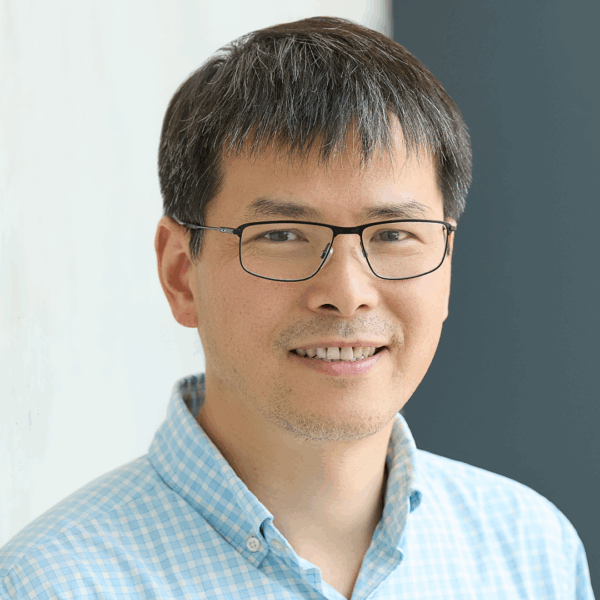Research
Dr. Wang’s research focuses on identifying the BRCA1/BRCA2-containing machinery to orchestrate DNA damage repair and differentiation regulation in breast epithelial cells and others; identifying damage-induced stem cells during the tissue homeostasis and cancer development; and identifying new therapeutic targets through the synthetic lethality screen by targeting the DNA damage repair pathways. His team aims to elucidate the molecular and cellular mechanisms during the tissue regeneration and tumor development.
Biography
Dr. Hua Wang is an Investigator at The Lundquist Institute for Biomedical Innovation at Harbor-UCLA Medical Center, an Assistant Professor at the David Geffen School of Medicine at UCLA, and a member of UCLA-Jonsson Comprehensive Cancer Center. He has a long-standing interest in understanding the molecular mechanisms of BRCA1/2 to suppress breast cancer and identify new therapeutic targets for cancer treatment.
Upon the completion of postdoc and scientist training with Dr. David M. Livingston’s at the Dana-Farber Cancer Institute and Harvard Medical School, he started the independent investigator position in June 2020. Since then, Dr. Wang has built up the research program to understand the BRCA1/2 and RNA modification in genome stability and drug resistance. His work found that BRCA1-METTL3-ATR axis is important to resolve R-loop associated DNA damage to maintain genome stability, which is currently supported by ACS-RSG and NCI-RO1 grants.
In the last two years, his group has worked closely with Dr. Xiao’s group to dissect the crosstalk between m6A and A-to-I RNA modifications in tumorigenesis and chemotherapeutic resistance. In this proposal, they have developed a new mouse model and technology/model to understand the m6A-dependent A-to-I editing to reprogram cancer cells. The proposed work will provide critical insights into the roles of RNA modification in cancer biology.
